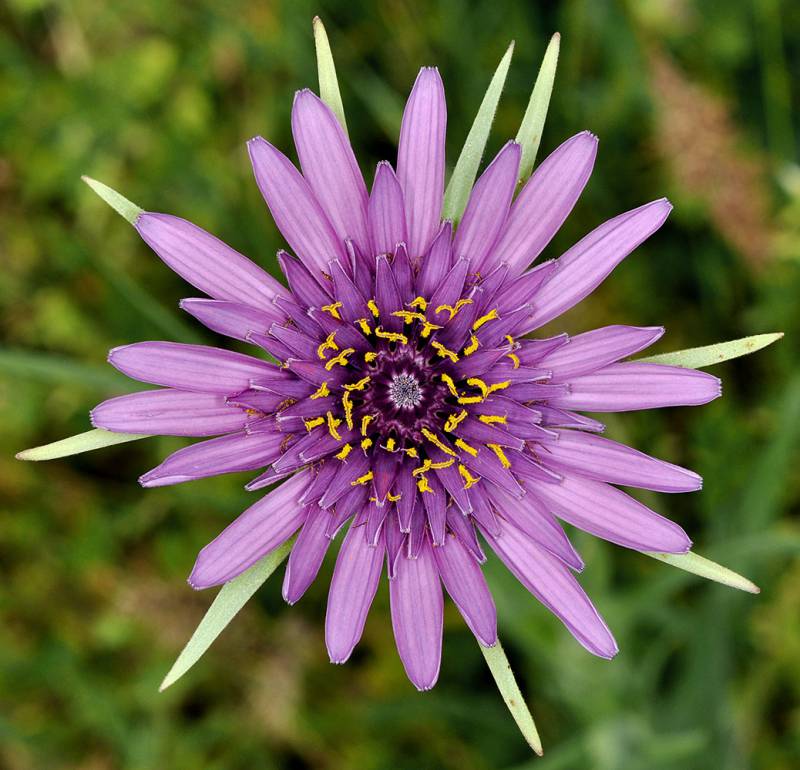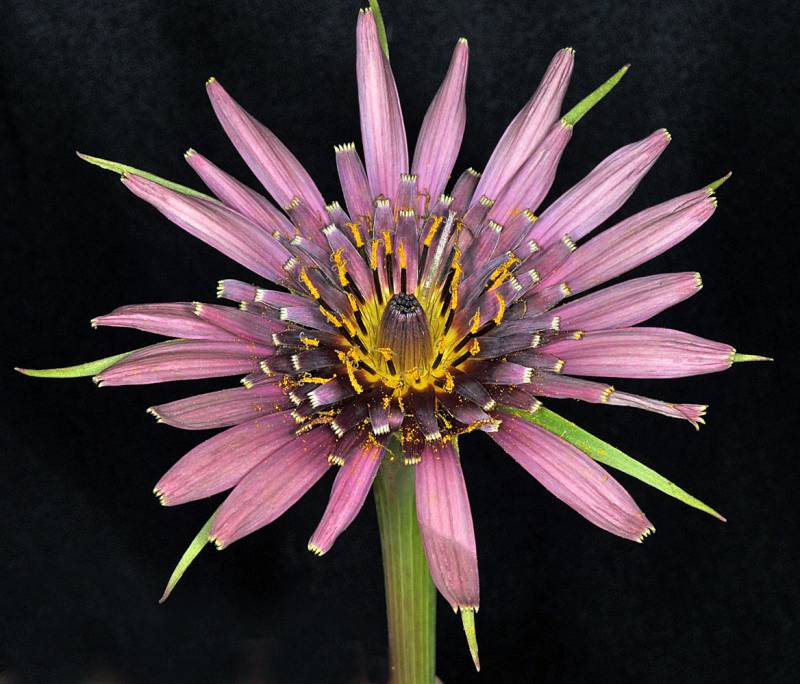Tragopogon porrifolius
Tragopogon mirus
oyster plant, purple salsify
remarkable goatsbeard
Leaves elongate, up to 30 cm. long and 2 cm. wide, tapering gradually from the base.
Leaves elongate, uniformly tapering from base to apex, entire, not recurved, mostly glabrous but with some loose, wooly hairs in the axils.
Heads solitary at the ends of branches, the peduncles enlarged and hollow under the heads;
involucral bracts in a single series, equal, 5-11, 2.5-4 cm. long in flower, distinctly surpassing the purple, ligulate corollas, elongating to 4-7 cm. in fruit;
pappus of a single series of whitish, uneven-length, plumose bristles, the plume branches interwebbed.
Heads solitary at the ends of branches, the peduncles enlarged and hollow under the heads;
involucral bracts in a single series, equal, broad at the base and tapering to a point, about 13, 2.5-4 cm. long in flower, barely surpassing the ligulate corollas, elongating to 4-7 cm. in fruit;
ligules brownish-purple with a yellow base;
pappus of a single series of whitish, uneven-length, plumose bristles, the plume branches interwebbed.
Achenes stout, 2.5-4 cm. long, the body 10-16 mm. long, abruptly contracted to the long, slender beak.
Achenes 2.5-4 cm. long, the body narrowed to the stout beak.
Tragopogon porrifolius
Tragopogon mirus
- Local floras:
BC,
CA,
OR,
WA
- Local Web sites:
CalFlora,
CalPhotos,
Flora NW,
PNW Herbaria,
Turner Photog.
WildflowerSearch
iNaturalist (observations)
USDA Plants Database
- LBJ Wildflower Center
- SEINet
- Plants of the World Online
- Encyclopedia of Life
- Wikipedia
- Google Image Search



